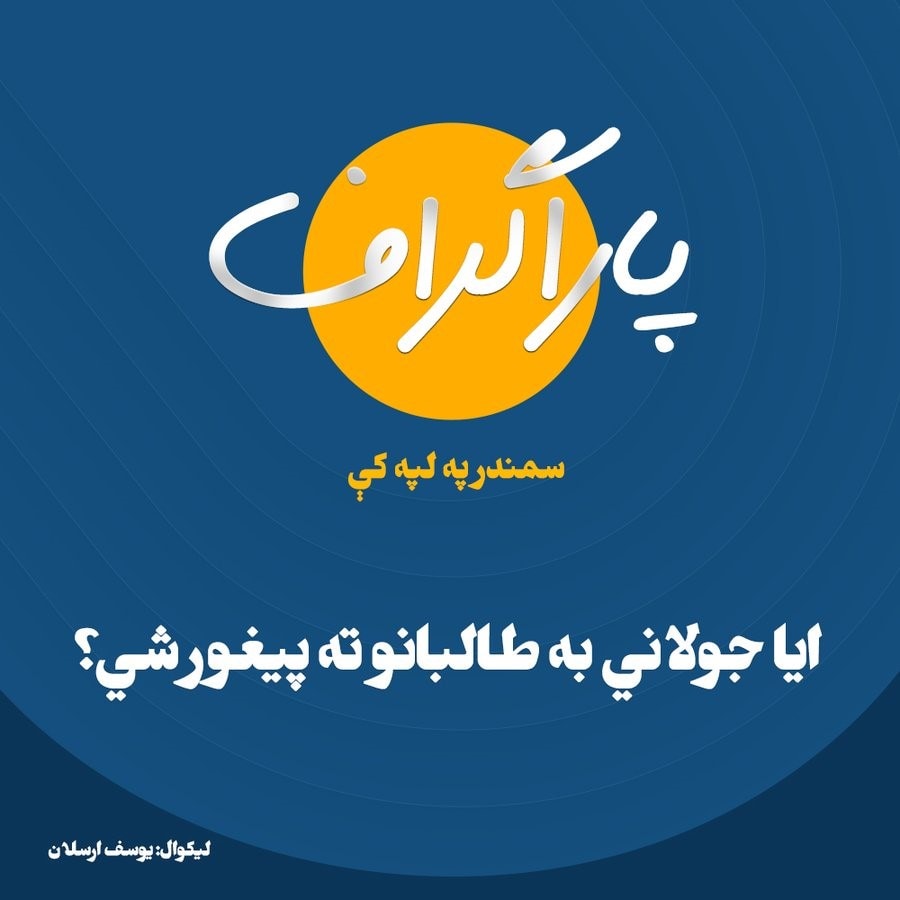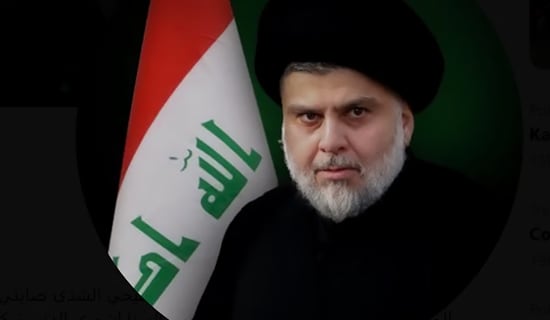The following report is now a complimentary offering from MEMRI's Jihad and Terrorism Threat Monitor (JTTM). For JTTM subscription information, click here.
On December 21, 2024, Hizb-ut-Tahrir Afghanistan published an article accusing the group's leader, Abu Mohammad Al-Joulani, of having shifted away from strict Islamic governance to pragmatic politics after the fall of the Al-Assad regime in Syria.
Hizb-ut-Tahrir Afghanistan cited two interviews that Al-Joulani gave. In the first, he accused then Egyptian president and Muslim Brotherhood leader Mohamed Morsi of turning his back on Islam and following the United Nations to please the West. In the second, when Al-Joulani spoke after toppling the regime in Syria, Al-Joulani discussed his "personality change and evolution, emphasizing that beliefs in times of war and peace are not the same."
Hizb-ut-Tahrir Afghanistan advocates for the establishment of the Second Rashidun ("Righteous") Caliphate. The Rashidun Caliphate is a term used by some historians to describe the first four caliphs of Islam, whom some consider to have been "rightly guided." The article says: "There will be those who follow the divine standards and the pleasure of their Lord. These are the mujahideen who are intent on establishing the Rashidun Caliphate, and they will be the successful ones."

Following is a translation of the article, which begins with a description of an Al-Jazeera television program
"Joulani Mentioned That He May Have Had Some Views In The Past To Which He No Longer Adheres Because Experience And The Passage Of Time Have Taught Him A Lot"
"Before the program begins, images of mujahideen are shown, who, during training, chant with determination that 'Mujahideen, we are building the caliphate state.' After this noisy beginning, an Al-Jazeera reporter says that he has an exclusive interview with the leader of the Nusra Front, Muhammad al-Joulani.
"This interview was about ten years ago; at that time, Joulani was unknown to the public and his image was hidden for security reasons, because he was being pursued as a 'terrorist' and the United States had put a $10 million bounty on his head.
"In this long interview, Joulani clearly states that his goal is to establish a government based on the Prophet's method. In his remarks, he criticizes the Muslim Brotherhood [leader] Mohamed Morsi, saying: 'The Muslim Brotherhood has submitted to the will of the West and has done more than the West asked of it... Morsi entered the United Nations; he did not govern according to the law of Allah and accepted parliament, elections, and everything that America wanted of him.'
"But a few days ago, in his latest interview with CNN, he showed a completely different side. He spoke about his personality change and evolution, emphasizing that beliefs in times of war and peace are not the same.
"Joulani mentioned that he may have had some views in the past to which he no longer adheres, because experience and the passage of time have taught him a lot. He added, 'Those who remain fixed in certain ideas or rules cannot manage society.' He wants the world to look at his actions and judge whether he has truly changed or not, if they do not believe his words. The Afghan [Taliban] government calls these statements 'wise' and 'resourceful.'"
"Some Of Joulani's Slogans And Those Of The Afghan [Taliban] Government Are Similar, But Joulani Said In An Interview With The BBC That He Does Not Want A Government Like The Taliban's"
"However, on the other hand, these positions have been met with mixed reactions in Afghanistan. After the recent changes in Syria, the Taliban – who are trying to interact with the world – have been flouted by their enemies.
"The Taliban's opponents (nationalists and secularists) took advantage of this opportunity and flouted the Taliban, saying that, 'The Taliban should learn from Joulani, from changing their clothes to respecting national values and symbols, freedoms, and the structure of the previous government.'
"Some of Joulani's slogans and those of the Afghan [Taliban] government are similar, but Joulani said in an interview with the BBC that he does not want a government like the Taliban's. As Joulani's interaction with the world intensifies, governments and opponents of the Taliban may use the changes and developments in Syria as a weapon against the Taliban and weaken their thoughts and positions.
"A U.S. State Department spokesman said, in a recent press conference, that if the Taliban and the new Syrian government want to be recognized, they must demonstrate in [their] actions that they have changed. The Taliban's internal opponents also preach that the speed of the Taliban's engagement with the world depends on the extent to which they retreat from their aspirations of establishing a 'Rashidun Caliphate,' such as [demonstrated by] Joulani.
"The world considers Joulani's actions as wisdom, intelligence, and political insight. As a result, some mujahideen may fall into the trap... and consider Joulani's path to be better. However, there will be those who follow the divine standards and the pleasure of their Lord. These are the mujahideen intent on establishing the Rashidun Caliphate, and they will be the successful ones."
The full text of this post is available to subscribers.
Please login or register to request subscription information from MEMRI





